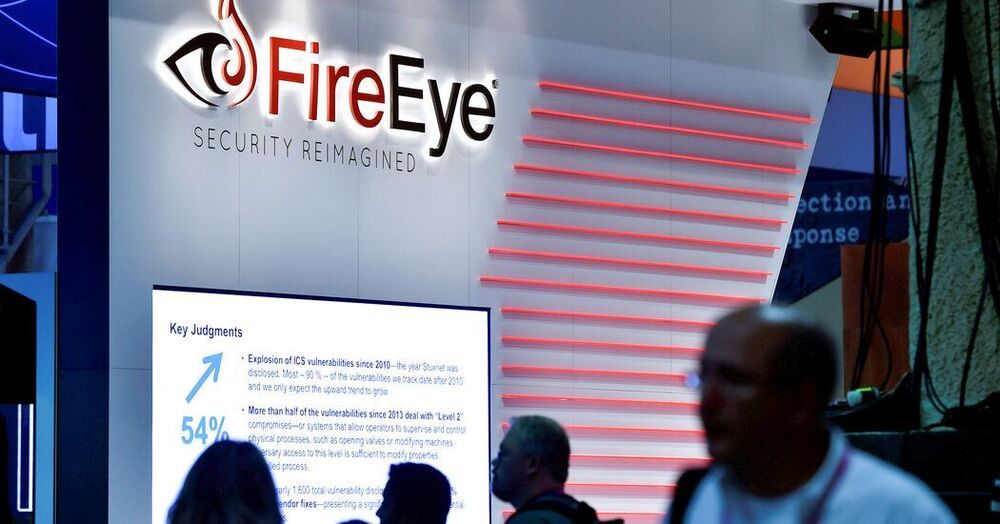Not a great look.



Hackers with possible links to Iran appear to have breached an unprotected human-machine interface system at an Israeli water reservoir that connected directly to the internet and lacked security protocols, according to industrial cybersecurity firm Otorio.
See Also: Live Webinar | Securing Mobile Endpoints to Protect IP in the Pharma Industry
The security firm reports that the alleged Iranian hacking group, referred to as “Unidentified TEAM,” published a video of the attack on an unnamed reclaimed Israeli water reservoir human-machine interface (HMI) system, which did not require any authentication to access and modify the system. This allowed the threat actors to tamper with the water pressure, change temperatures and more.

Norway’s domestic security agency has said that Russian hackers linked to the country’s military intelligence service were “likely” behind a cyber attack against the Norwegian parliament this year.
The network operation behind the attack was part of “a broader national and international campaign that lasts at least since 2019” the Norwegian Police Security Service (PST) said in a statement.



FireEye, normally the first company that cyberattack victims will call, has now admitted it too has fallen victim to hackers, which the company called a “sophisticated threat actor” that was likely backed by a nation-state.
In a blog post confirming the breach, the company’s chief executive Kevin Mandia said the nation-backed hackers have “top-tier offensive capabilities,” but did not attribute blame or say which government was behind the attack.
Mandia, who founded Mandiant, the incident response firm acquired by FireEye in 2014, said the hackers used a “novel combination of techniques not witnessed by us or our partners in the past” to steal hacking tools used typically by red teams, which are tasked with launching authorized but offensive hacking campaigns against customers in order to find weaknesses or vulnerabilities before malicious hackers do.
Global #connectivity lets for #digitalidentity for billions of people worldwide, giving them access to #telehealth, #education, #careers, #entertainment and #finance services, as well as raising #cybersecurity and #dataprivacy concernsRe-sharing. Starlink can help telemedicine become more reliable and available to people in need. Especially those in rurual or far flung locations.
Video Source/Credit: SpaceX Youtube Channel
One interesting sub-division of SpaceX is Starlink, which is Musk’s venture into increasing global connectivity. Starlink’s mission is to use a global network of low Earth orbit satellites to eventually “deliver high speed broadband internet to locations where access has been unreliable, expensive, or completely unavailable.” While satellite internet itself is not a novel concept, most of the traditional systems use dated technology that have far less capabilities with regards to internet speed, connectivity, and sustainability. Starlink’s goal is to provide high-speed broadband internet, using cutting-edge satellite systems that will also not add to the space pollution created by traditional systems. As of now, the company states that it “is targeting service in the Northern U.S. and Canada in 2020, rapidly expanding to near global coverage of the populated world by 2021.”


The group uses tools outside of the country for this attack campaign, as well as custom malware, including custom malware – including backdoor. Hartip – that Symantec has never used. Compromised computers at the time of the attack included domain controllers and file servers, and there is evidence that files are being filtered by some compromised computers. Attackers frequently used DLL side loading in this campaign and took advantage of the patched Zerologon vulnerability in August 2020.
Symantec first addressed this campaign when suspicious DLL-side loading activity on one the customers networks triggered a warning from Cloud Analytics technology available in Symantec Endpoint Security Complete (SESC).
The campaign is spread across the world, with a large number of regions detected as the victims of the attack. The common link between all the organisations that were attacked were their links to japan or japan based organisations. In the map you can clearly see that there was a reportedly Chinese-government-linked group attacking companies within China’s borders but, like many of the companies targeted in this campaign, the target in that instance is a subsidiary of a Japanese organization.
